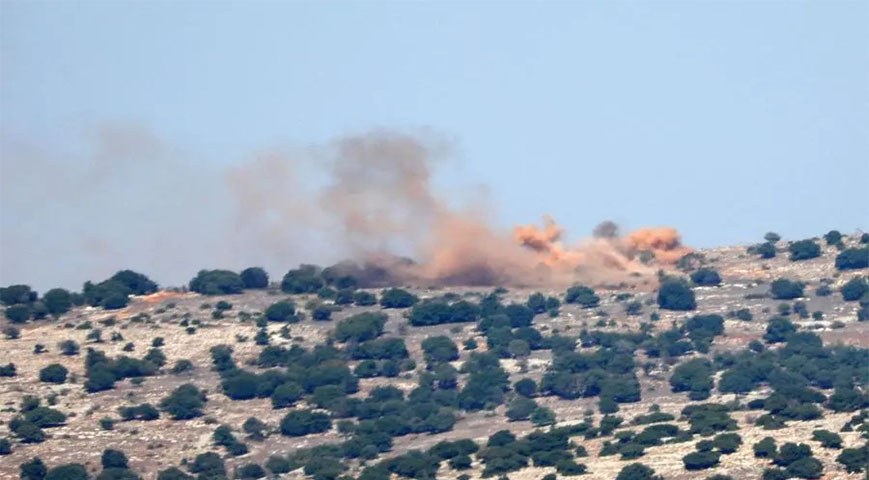Fires caused by Israeli shelling in south Lebanon have destroyed 40,000 olive trees, threatening a critical Lebanese crop.
Fires have erupted on Lebanon's side of the border regularly since the Iran-backed Lebanese Shi'ite party Hezbollah and Israel began exchanging fire last month following the outbreak of conflict between Israel and Gaza's leading Palestinian Islamist group Hamas.

"40,000 trees equals 40,000 stories." People have a mystical connection to olives. Our forefathers planted them, and we are losing them today," Agriculture Minister Abbas Hajj Hassan told Reuters.
Did you read this?
The agriculture minister accused Israel of igniting the fires by using white phosphorous shells to destroy wooded areas that Hezbollah forces might use as cover when they began firing into Israel in support of Hamas in what has become the greatest flare-up of border hostilities since a 2006 conflict.
The Israeli army refuted the charge, claiming that the smoke-screen shells it employs do not contain white phosphorous.

"The smoke-screen shells containing white phosphorus in the (Israeli military) are not intended or used for setting fire, and any claim that these shells are used for that cause is baseless," a spokesperson for the Israeli army stated.
He added that 130 fires were reported in 60 villages and their surrounding areas during the battle.
Mohammad el Husseini of the South Lebanon farmers syndicate warned the Lebanese government would be unable to compensate farmers for their losses.
Lebanon's agriculture ministry requested aid from the United Nations Food and Agriculture Organisation (FAO) on Tuesday to assist impacted farmers and evaluate the soil to establish the extent of the damage, according to Hajj Hassan.
According to U.N. figures, olive production spans more than 20% of farmland in Lebanon and provides income to more than 110,000 farmers and producers, accounting for 7% of agricultural GDP.









